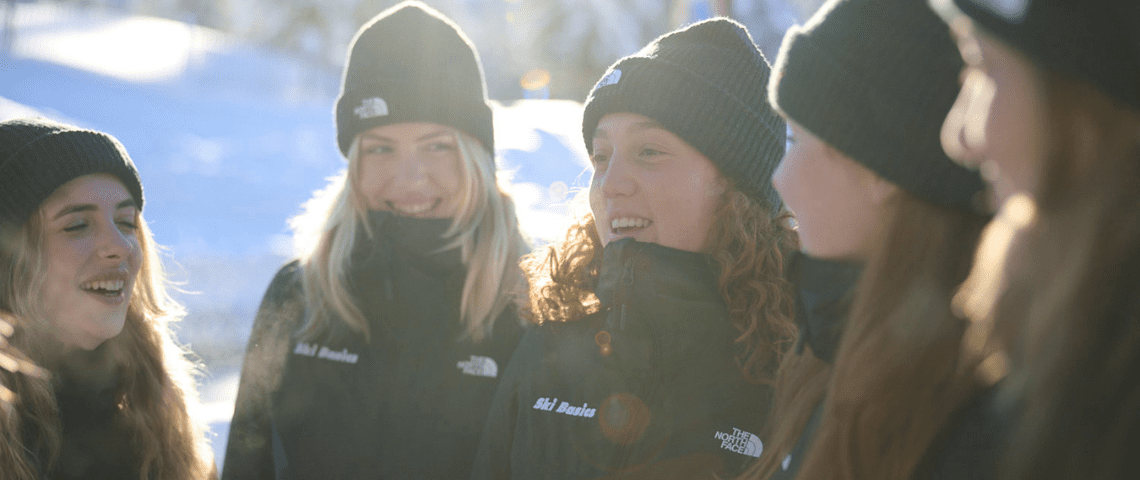
Are Ski Seasons Worth it? Deciding if You Should Do a Ski Season
Asking yourself “should I do a ski season”? Before you make your choice, it’s helpful to know exactly what’s going to be in store. In this blog, we’ll explore what a ski season truly entails, from the exhilarating winter sports and vibrant après-ski culture to the diverse job opportunities that let you live and work within stunning mountain landscapes. You’ll discover seven reasons why a ski season might be the best decision you ever make, along with some things to consider.
Whether you’re a seasoned skier or new to the slopes, read on to learn everything you need to know about embarking on this unforgettable adventure, which will more than likely be the best winter of your life.
What is a ski season?
A ski season is the months from winter to spring when a ski resort is open for winter sports activities. For example, all the best things we know and love, such as skiing, snowboarding, snowshoeing etc. It’s the period when the lifts are operating and slopes are officially open to be enjoyed.
It’s also during this time that seasonal jobs are available for those wanting to spend the winter working in the ski resort. In this sense, a ski season refers to a winter spent working in a ski resort, enjoying the wonders that the mountains have to offer in your spare time. From chalet hosts and drivers to hotel, bar and restaurant work – there’s often a whole array of jobs available.
Ski season jobs usually begin in late November and run right through the season until late April / early May depending on when your chosen resort is open until or until the employer requires your help.
7 Reasons You Should do a Ski Season
There are countless reasons why doing a ski season is likely to be one of the best decisions you ever make. But, here we’ve rounded it down to 7 and some of them might just surprise you!
- You’ll Meet Friends for Life
- It’s the best way to learn to ski or snowboard better
- You’ll be better off than you might assume
- The aprés ski
- It’s an experience you’ll talk about for years to come
- It looks great on a CV
- It’s a chance to live in a completely different country
1. You’ll Meet Friends for Life
Anyone who has been on a ski season will undoubtedly recount making friends for life as one of the biggest joys of their experience. You arrive at the resort with no more than just your bag, maybe some skis or a snowboard and a love for the mountains alongside a whole host of others just like you! There is truly no better way to meet like minded people and then have the opportunity to spend the next 6 months making lifelong memories together.
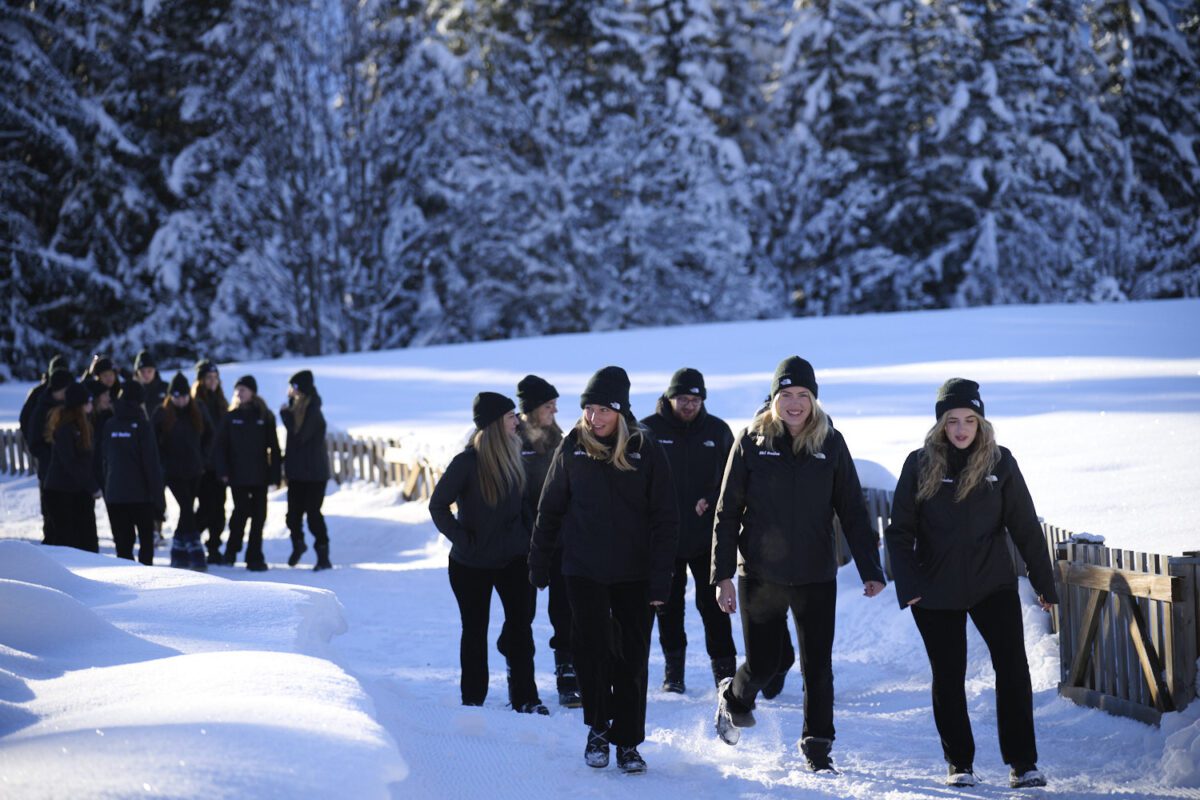
Yes, you will spend time working but even the times spent off of the slopes will form unforgettable memories that you’ll look back on for years to come.
2. It’s the best way to learn to ski or snowboard better
You know that they say, practice makes perfect. So, what better way to hone your ski and snowboarding skis than by having the opportunity to practise every day for 6 months?!
Whether you’re an advanced skier or a complete beginner, a ski season is the ultimate opportunity to master your skills. Not only will you have the entire winter to spend perfecting your technique but you’ll also benefit from skiing or snowboarding in a range of different weather, snow conditions and terrains throughout the season – something that’s often not possible when just visiting for a week or two each season.
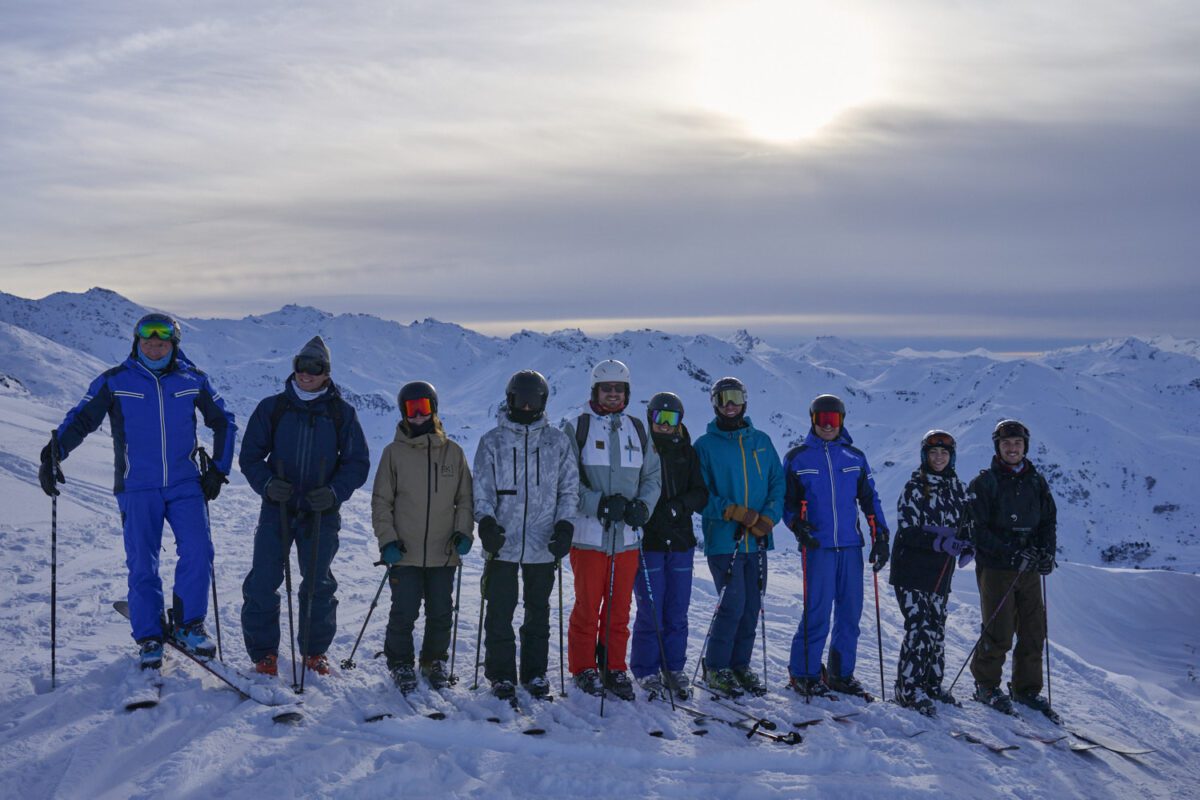
And the best bit? Depending on which company you work for, you’ll also get the chance to make the most of some early season lessons or enjoy seasonnaire discounted rates with local ski schools.
3. You’ll be better off than you might assume
A common misconception is that doing a ski season will mean that you’re short on money. Of course, this will depend on the amount you’re earning vs the amount you’re spending but something we hear from our staff year after year is that they have actually managed to save some money!
Depending on the work you do, some elements such as food and accommodation will be covered by your employer. If you’re really lucky, things like ski hire and ski passess will also be included as part of your employment meaning that you’ll often only end up spending food on additional things outside of work like lunches whilst out skiing, apres and anything extra you get up to. Plus, again depending on the work you do (and how well you do it!) you may even be lucky enough to earn some additional cash in the form of tips from guests and clients, meaning you might just be able to save some of your salary.
4. The aprés ski
Whether you’re a big partying fan or not, there are truly few things that compare to ending an epic day on the slopes with apres ski. Picture this: Cold crisp drinks, live music and breathtaking mountain backdrops as you watch the sun set behind the peaks for another day. We can wholeheartedly guarantee you that apres ski memories will make some of the fondest memories of any ski season. The best bit? It’s on every day! Say goodbye to living for the weekend.
5. It’s an experience you’ll talk about for years to come
If you hadn’t already gathered, a ski season will undoubtedly be some of the best months of your life. The memories made will be with you for life and you will no doubt recount them for years to come. Whether from sitting at your desk after resigning to the 9-5, whilst you enjoy ski holidays with the family in years to come or perhaps even whilst you enjoy your 20th season years down the line. One thing is for sure, you certainly won’t ever forget it!
6. It looks great on a CV
No matter what work you do, it will have a whole host of transferable skills. From running a chalet and mastering the skill of budgeting, managing a chalet and hosting for up to 14 guests to perfecting your problem solving, organisation and management skills as a resort manager.
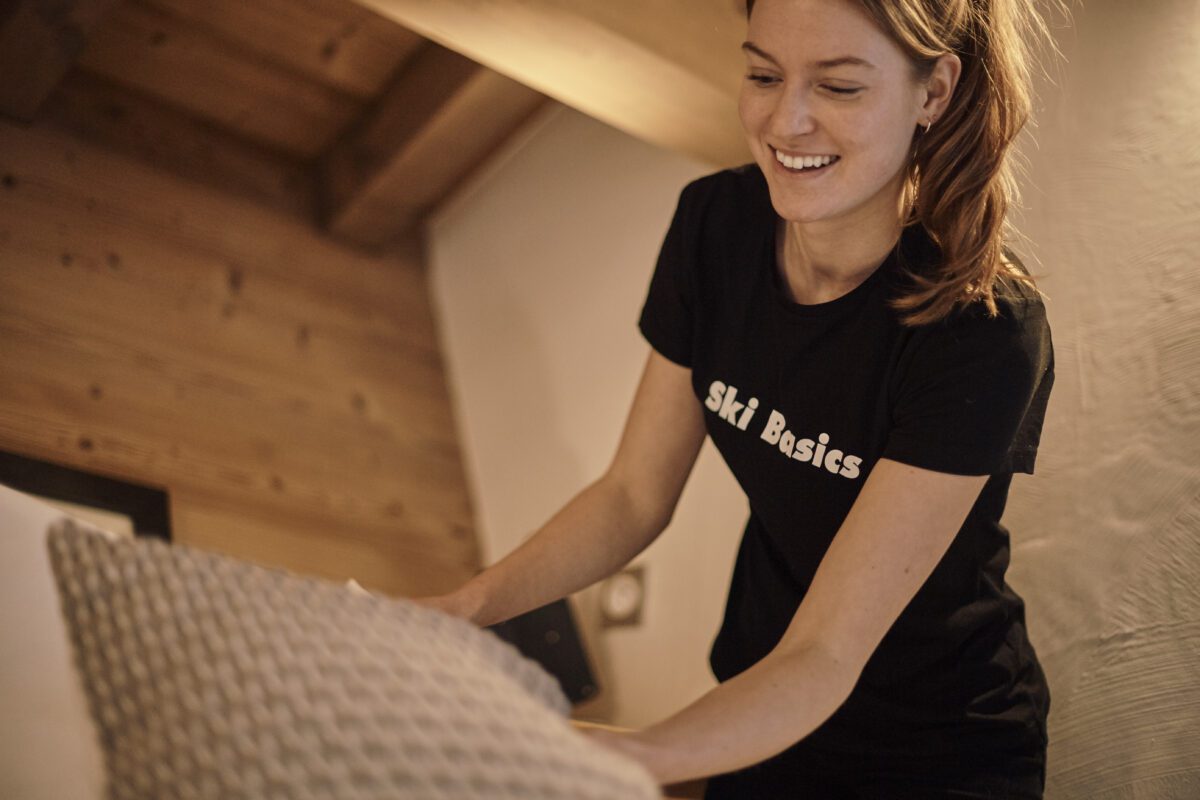
Plus, most people know that work on ski season can be tough! Late nights, early mornings and ensuring others have a holiday to remember (more than likely with a sore head on some days) demonstrates that you’re capable of working extremely hard and picking up a diverse range of new skills which is a big plus for employers of any description.
7. It’s a chance to live in a completely different country
Living in a completely different country for a ski season presents an exciting opportunity to immerse yourself in a new culture while enjoying the thrill of winter sports. It’s a chance to step outside familiar surroundings and embrace the adventure of living abroad, all the while, honing your skiing skills on world-renowned slopes.
Beyond the adrenaline rush, this experience fosters personal growth, intercultural understanding, and unforgettable memories that last a lifetime.
The Downsides of a Ski Season to Consider
We certainly can’t think of many downsides to doing a ski season but if we had to think of elements for consideration, it would probably be:
- A ski season is hard work
- You might get homesick
- The work is largely seasonal
- Language barriers at some resorts
A ski season is hard work
Late nights partying followed by early mornings on your top form are never easy. But, you’d be surprised how quickly you become accustomed to the work hard play hard nature of a ski season. Not matter what role you’re doing, since ski season jobs are almost all service-led, you will be required to put the work in and maintain a high standard whilst doing so.
You might get homesick
During moments of downtime it’s not uncommon to get homesick and it’s completely understandable. However, even in these moments of missing home, you’ll no doubt soon find yourself revelling at the joys of ski season life again before long. Plus, having family and friends out on holiday to visit and showing them around town is always an amazing part of the season if it’s possible to do so.
The work is largely seasonal
As it says on the tin, most ski season jobs are seasonal. This may or may not work for you but if you’re looking for year round work in a ski resort there are still a whole host of options. Many ski resorts have summer seasons too, meaning you’ll more than likely be able to find employment during the late spring and summer months. Plus, many businesses do operate year round. So, if you’d prefer to stay working for the same organisations, just be sure to keep an eye out for those that are when applying.
Language barriers at some resorts
Language barriers may also be a point for consideration when deciding whether or where to do your ski season. This will of course depend on the resort you decide to do your season in but also on the business you work for. For example, if customers are largely international or most often from one particular country. Language requirements will often be included on job descriptions or if not, you can always ask upon application.
What Do You Actually Do on a Ski Season?
A ski season is the perfect blend of adventure, socialising (most commonly in the form of apres ski), and adventure. When you’re not working (which is often surprising more often than you think) you’ll be out on the mountain, enjoying long days of adventure followed by breathtaking sundowners.
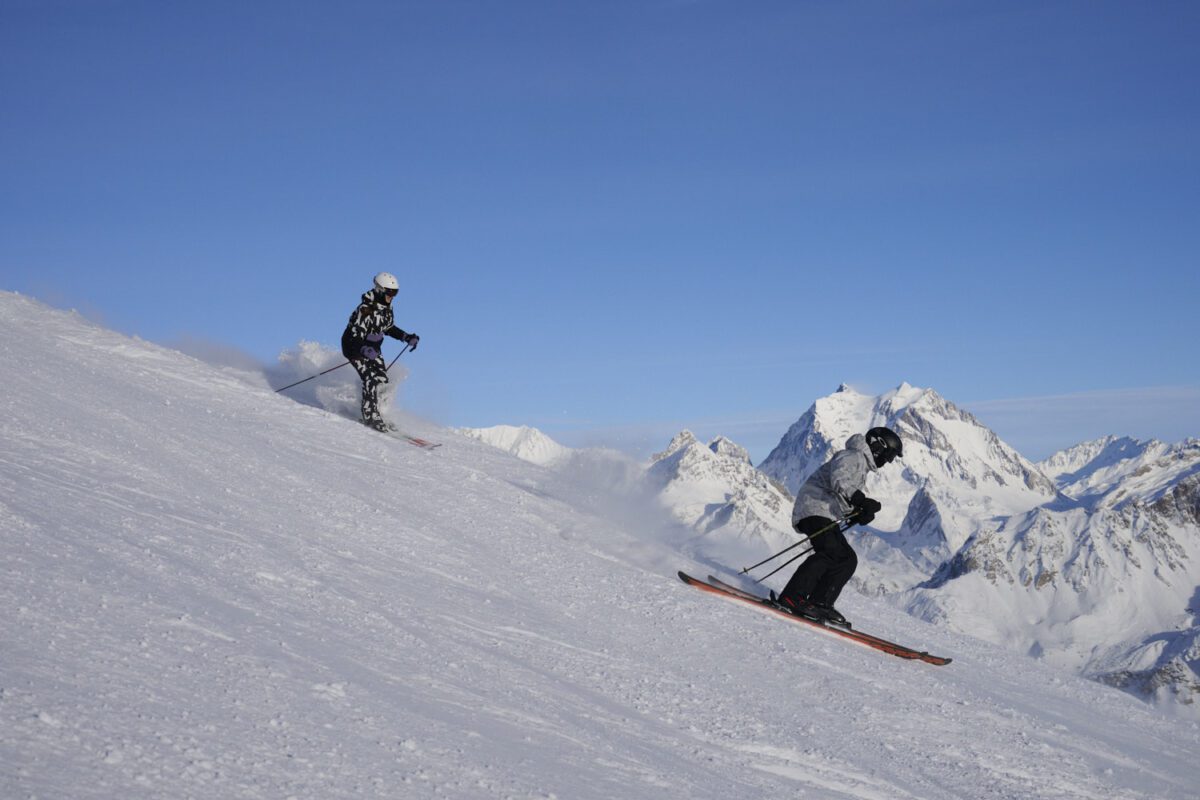
On the evenings that you’re working, you’ll no doubt wrap up the night back at your accommodation with friends recounting tales of the day or head off out to enjoy the hustle and bustle of resort life before hitting the hay ready to get up and do it all again the next day.
How to get a ski season job
To secure a ski season job, start by researching different resorts and the types of roles they offer to find the best fit for your skills and preferences. Make use of job search websites and platforms specific to the ski industry to browse available positions.
Additionally, join Facebook groups or online communities dedicated to ski season jobs, where you can find job postings and connect with others who have experience working in ski resorts.
If you have a particular company in mind, consider applying directly through their website or contacting them directly. Recruitment for the upcoming season most often starts in early May once companies have wrapped up the previous year. It’s crucial to apply early, as positions fill up quickly, and competition can be fierce so there’s no harm in sending over your application before recruitment officially begins.
To increase your chances of success, gain relevant experience in hospitality or customer service roles beforehand, demonstrating your ability to excel in a ski resort environment. Many organisations, like us at Ski Basics, work closely with businesses like Orchards Cookery School who offer Chalet Cook courses to provide you with the necessary training and skills needed for a season.
Ski Season Experience Requirements
The experience required for your ski season role will of course depend on the job. However, for the most part, a level of relevant experience for the role will always be required. For roles with us at Ski Basics in Meribel, applicants should have a genuine passion for high standards of service, attention to detail and be driven to ensure each and every guest has their best ski holiday yet. Previous hospitality, chalet, catering, or hosting experience, as well as cooking qualifications, are preferred. We also believe each candidate should be judged on their experience, confidence, and friendliness so head over to our jobs page to learn if it could be a fit for you.
Closing Thoughts on Ski Seasons
Deciding whether to dive into the world of ski seasons is a big decision, but trust us, it’s one that’s packed with more thrills and unforgettable moments than you can imagine. Imagine this: shredding down fresh powder with your new friends, the sun setting behind the peaks as you look down the valley. Sure, you might feel a bit of homesickness now and then, but before you know it, you’ll be too busy soaking up the ski season vibes to dwell on it.
And let’s not forget the perks—like picking up new skills, making memories that’ll last a lifetime, and living it up in a new country. So, if you’re up for an adventure like no other, then a ski season is calling your name. Get the ball rolling and apply now.
If you’d like to learn more about Ski Basics, you can check out our services or jobs page above. Or, if it’s just a holiday you’re looking for, why not take a look at our chalets and remaining availability for the upcoming season.
If you have any questions at all, whether about ski seasons or ski holidays, don’t hesitate to get in touch and a member of the team would be pleased to hear from you!
Ski Season FAQs
Do you need to be able to ski to do a ski season?
Definitely not! If you can’t ski or snowboard, a ski season is the ultimate time to learn. When else will you get the chance to spend 6 months mastering your technique? And, you’re unlikely to be alone. It’s not uncommon for people who have never skied or snowboard to head out for a ski season,
What age do people usually do a ski season?
The majority of people on a ski season will be aged within the age range of 18 to 35. However, it’s worth noting that individuals from diverse age groups and backgrounds can be found working in various roles on the slopes so there’s certainly no wrong or right age and or such a thing as “too old”.
Where is the best place to do a ski season?
Meribel in the heart of the Three Valleys is undoubtedly the best place to do a ski season. Don’t believe us? Here’s 9 reasons why you should do a ski season in Meribel.
